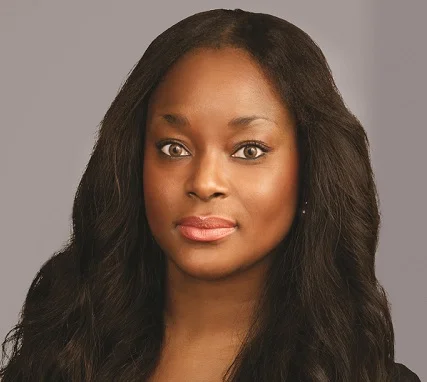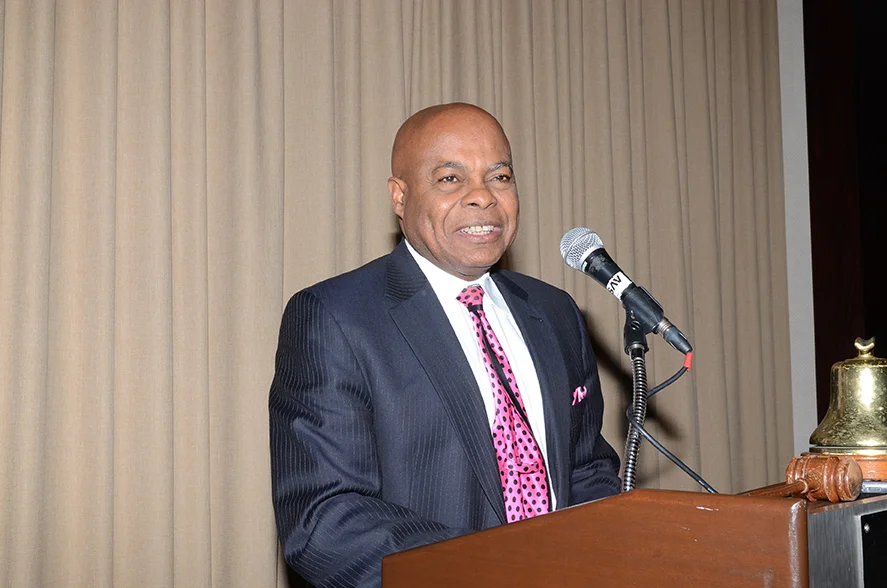Black law students urged to strive for excellence
Former Canadian Association of Black Lawyers (CABL) president Frank Walwyn didn’t mince words when addressing Black law students at their 25th national conference in Toronto recently.
With ‘Raising the Bar: Striding Towards Excellence’ being the theme of the two-day celebration, the litigation partner told them demanding standards of professional brilliance are required for longevity and success in the intellectually exacting profession.
“The downtown law firms stress excellence and that means doing things over and over and getting it right,” Walwyn noted. “You just don’t make mistakes because the guarantee that the big firms give to clients is that they are going to get it right. Everybody does good work regardless of what firm you go to. The one standard is good work and you get to that point by working hard. You have to put in the time, roll up your sleeves and sit your bottom in a chair working.”
Even before they are hired by a law firm, Walwyn pointed out that their articling experience will be challenging.
Articling is mandatory for all Canadian law school graduates who wish to become fully fledged lawyers.
“My parents couldn’t fathom why I was out of the house for such lengthy periods,” he said. “I used to get home at 2 a.m. and be up and ready to go again four hours later. This is what the articling experience in the profession was demanding at the time.”
Called to the Ontario Bar in 1995, Walwyn started as an associate with WeirFoulds -- one of the country’s oldest law firms – before transitioning to partner, making him the first Black to attain the esteemed position in the company’s 156-year-old history. He was also their first Black staff lawyer.
“When I started, it was about 5-6 years (before you could be considered for partnership) and it’s the holy grail of the profession,” said Walwyn who was named one of Canada’s top lawyers in the area of corporate and commercial litigation in the 2012 edition of The Best Lawyers in Canada. “It’s where you share in the profits of a firm. That’s when you start to make some money and have some control over your life and career. You make partnership based on professional excellence. If you are not a good lawyer and the best lawyer, you will not be invited into the partnership.”
In the current competitive legal environment, Walwyn challenged the aspiring lawyers to consider leveraging their differences.
“While I realised that integrity, character and personality were key qualities, the one thing that got my attention as I went down this partnership road was the ability to have a self-generating practice,” he said. “That meant bringing in and keeping clients. The key to a client base is not having clients. It’s having clients with the ability to pay what the firm is charging.”
Concerned his chances of making the partnership would be jeopardized because he would be unable to attract clients who could afford a Bay St. law firm price tag, Walwyn was contemplating returning to St. Kitts, his birth country, where he was confident the clients on that small island could afford his prices.
He secured a leave of absence from his firm and spent a year in the Bahamas obtaining his qualifications to practice in the Caribbean.
The ability to practice in the Caribbean paid huge dividends for Walwyn and his firm.
After almost 12 months back in Toronto, WeirFoulds invited him to be a partner.
“I went to St. Kitts & Nevis and did a trial that lasted 14 days over three years,” said Walwyn who is a member of the bars of Anguilla, Antigua & Barbuda, Barbados, Belize, the British Virgin Islands, Dominica, Grenada and St. Kitts & Nevis. “What that did was give me a lot of exposure in the Caribbean and the local firms in St. Kitts & Nevis a lot of exposure to me. That led to me getting a call from a local firm saying they had a big piece of litigation and asking if I could come and help them with it. When I asked if they could pay, their response was ‘let’s talk’. What I didn’t realise was that these small islands have international financial centres (tax havens) with a lot of money flowing through them and tons of litigation.
“There are also some jurisdictions like Barbados that have treaties with Canada and that facilitate the flow of commerce between the two countries. It sets up, effectively, preferential tax treatment. What that means is there is a lot of legal work that flows between Canada and countries with treaties like that.”
Walwyn urged the students to engage in community service that will help develop their skills beyond their substantive practice field.
“Give back to your community at large or to the legal profession,” the Ryerson University distinguished visiting professor told them. “It’s most important that you join associations as that helps to widen your life and experiences.”
The Black Law Students Association of Canada (BLSA) emerged in 1991 after a small group of students met with then University of Ottawa equity director Joanne St. Lewis at Osgoode Hall Law School to discuss issues pertaining to Black law students and the feasibility of forming a national body.
“Twenty five years later, BLSA Canada offers a safe space where students can break their relative isolation, seek and share insights on the legal profession and count on the encouragement of members of the practicing bar as they follow their legal trajectory and plan their legal careers,” said the organization’s president Stephanie Deborah Jules, a third-year law student in McGill University’s common and civil law program.






